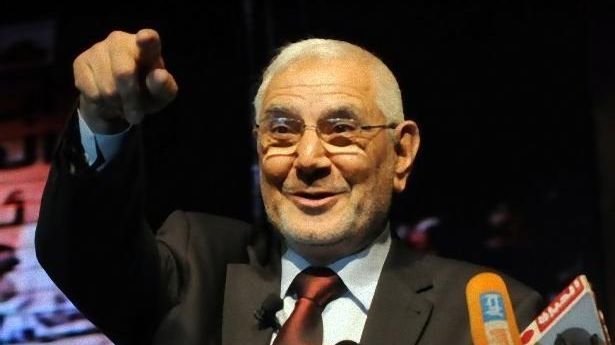CAIRO: In commemoration of World Humanitarian Day, the United Nations Office for the Coordination of Humanitarian Affairs highlighted the crises in Libya, Yemen and Somalia, discussing their relief plans.
This year’s event, held under the theme “People helping People,” was held on August 21 at the UN Information Center.
“UN agencies and its partners use this opportunity to pay tribute to those who gave their lives as they were offering humanitarian aid to people in need around the world,” said
“World Humanitarian Day is also about remembering those in need and in this region the people of Libya come first [where] the protection of civilians is a priority,” Abdul Haq Amiri, United Nations Office for the Coordination of Humanitarian Affairs (OCHA).
The Regional Flash Appeal for the Libyan Crisis, which was launched on March 7, estimated the need for $407,998,151. “So far 60 percent have been raised from the amount,” said Amiri.
In addition, Amiri highlighted other problems in the country as well such as the underground mines, sexual violence against women and the kidnapping of women.
“Yemen comes next where also the protection of civilians is a priority and it is difficult due to the security situation,” Amiri said, noting that so far 76 children have lost their lives in the conflict.
He added that people don’t have access to basic needs as food.
The Yemen Humanitarian Response Plan which was launched on November 30, 2010, has determined the requirement needed at $290,402,610 of which 51 percent has been raised so far.
One of the major humanitarian crises of the year is the famine in the Horn of Africa where more than 13 million people are affected.
“So far five places have been officially declared in a state of famine, the fear is that the entire area of southern Somalia be announced,” said Abeer Etefa, senior public information officer at the World Food Program (WFP).
WFP, was able to reach eight million people in the Horn of Africa
Appeals and funds for Somalia were being collected since November 30, 2010 with the requirements needed at $1,062,743,765, of which 54 percent has been covered.
“Saudi Arabia alone has donated $50 million, from Egypt it is noted that the majority of the donations come from individuals,” said Etefa.
“We always want and hope that countries would keep their borders open for humanitarian goods and supplies to help those in need, as bureaucracy and logistics which in a way or another prevents the needs of being delivered,” Amiri explained.
Furthermore, he pointed out the need for states and local NGOs to coordinate with the UN and other organizations working in the region.
“It is important to know what supplies are needed and to who, where and how, we as a coordinating agency, if a member state provides us with this information it will help us understand so we can determine the priorities,” he said.
“[I] also encourage NGOs in member states to let us know what they’re doing so we can respond to the humanitarian needs efficiently,” he added.
Save the Children, an NGO working on helping children all over the world, was also present at the celebration in Cairo.
“We have a team for humanitarian needs everywhere, including Libya and Somlia and Haiti,” said Ahmed Sobeh, officer in charge at Save the Children Cairo.
“In Libya, the team there at the moment is evaluating the needs and offering services related to health, education and protection to the civilians,” he said.
“Children are the most vulnerable group as when a child lives through armed conflict or natural disaster it affects them psychologically, [therefore] we have trained teachers and doctors so that when they deal with children they make them express themselves and don’t hold anything in,” Sobeh explained.
In his message on World Humanitarian Day, celebrated on August 19, United Nations Secretary General, Ban Ki Moon, said, “There is never a year without humanitarian crises. And wherever there are people in need, there are people who help them, the men and women coming together to ease suffering and bring hope. From Japan to Sudan, from Pakistan to the Horn of Africa, aid workers help people who have lost their homes, loved ones and sources of income.”
“[World Humanitarian Day] is also a day to examine our own lives and consider what more we can do to help, to reach out to people enduring conflict, disaster and hardship. Let those we honor today inspire us to start our own journey to make the world a better place and bring our human family more closely together,” Ban added.
